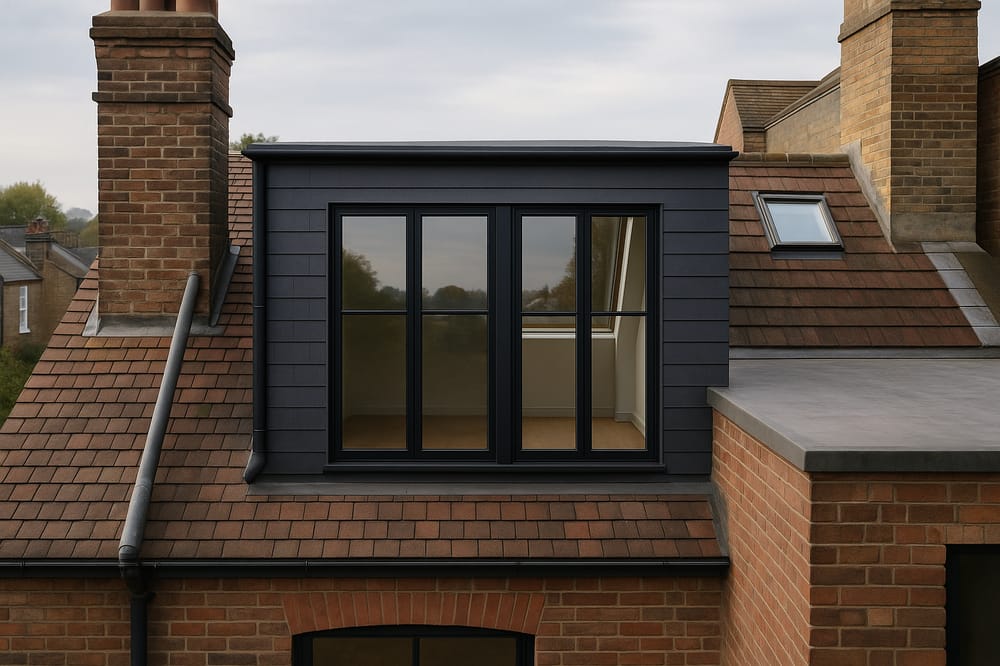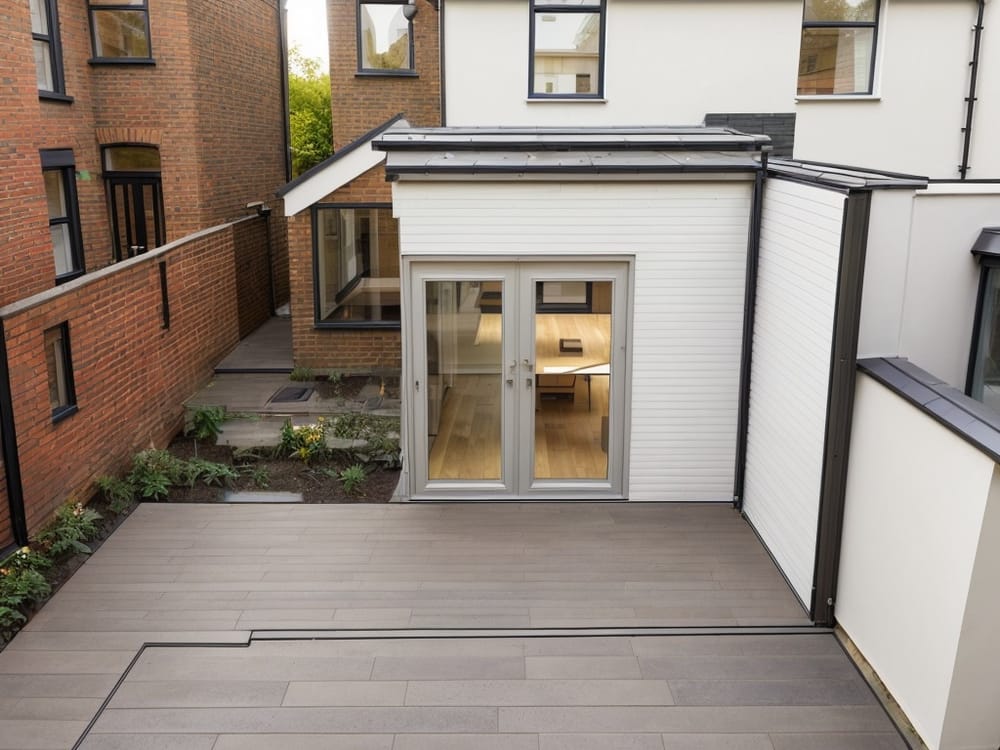Contractors come in all shapes and sizes, each with their own individual specialities and experience. Choosing the right one for your project will ensure you not only get a quality build but that your budget remains in good hands during construction.
Not sure where to start? Don’t worry, our Connect team have put together this essential guide…
Types of contractors
When you start the tendering process, here is a list of key contractor terms you’re likely to encounter.
Approved contractor
This is the builder you have appointed to carry out work for your project. They’ll be selected during the tendering stage based on their level of experience, resources, and track record.
Learn more: a guide to selecting your contractor and more
Construction manager
Your construction manager won’t be carrying out the work themselves, it’s their job to manage the trade contractors who are onsite.
Design and build contractor
These types of contractors not only provide the build, they also handle the architectural design too. Unlike architects, they won’t have any formal design qualifications and you won’t have the same level of protection on this front either.
Learn more about design and build companies.
Domestic subcontractor
Selected by your main builder, a subcontractor will be brought onsite to carry out a specific part of the construction works. Because you won’t be part of the hiring process, it’s worth discussing if your builder plans on using subcontractors during the tendering stage.
Nominated subcontractor
This is a subcontractor that you have selected and imposed on your main contractor to work with.
Named subcontractor
A homeowner might choose to put together a list of subcontractors for their main contractor to select from. Because they’re making the final selection, the responsibility of this subcontractor will fall to your main builder.
Supplier
A general term that’s used to describe any provider of services or goods during the construction process.
Trades contractor
A contractor who is in charge of a specific element of your project, such as the electrical installation. Unlike a subcontractor, this is a professional you have hired directly and manage.
Work package contractor
This specialist contractor handles specific aspects of the maintenance or replacement work a build might require.
Types of building companies
The types of companies a contractor belong to or owns will also play a major role during the tendering stage. Each size of practice has its own advantages and disadvantages for you to consider.
At Resi, we’ve broken these various contractor types into three general categories…
The one-man band
Pros: Cost-effective and personal.
Cons: Potentially less reliable than larger companies and usually less available on short notice.
These solo traders are exactly as they sound, they're a lone contractor who’s able to handle the work by themselves. These kinds of builders are best used for small projects, usually renovations, but could be an option for small scale extensions, depending on their skill level.
Many homeowners find themselves considering a one-man band, as they’re the cheapest option when it comes to construction. But these cost-effective prices could come with their own drawbacks.
With limited manpower, these builders usually only take one job on at a time. This means you get a personal service but also means they have limited availability throughout the year. A good solo contractor can sometimes be booked up for over a year.
Speaking of timings, the one-man band also tends to be slower when it comes to constructing your project. This could be a fair trade-off for a good price, but if you have to rent temporary accommodation, your extended stay away from home might cancel out your savings.
What’s more, your money might be more at risk with these traders. That’s because, unlike larger companies, they’re unlikely to have the cash flow to properly upfront the material and construction costs. This could mean you get asked to pay for construction upfront (very dangerous) or they cobble the money together but could run out of funds halfway and have to take on other jobs to make the money up. In this latter scenario, this could mean you’re waiting even longer for your build to be complete.

A builder with some help
Pros: Still pretty cheap and keen to build their company.
Cons: Might not be ready for your project, little financial security.
A builder will often grow their business organically. They’ll start off small and, as they get more jobs, slowly identify labourers and other traders that are reliable, who they’ll then put in charge of a site so the builder can go work on other homes.
With the right company, this could be an advantage for your home. In the middle of growing their business, these contractors are often very ambitious and keen to make a positive impression. This means you get a great service for a very competitive price.
However, on the flip side, these advantages can also be a drawback. With their business growing, they might not have worked out all the ins and outs yet. These builders can be caught out financially because, for example, they might price a job based on their experience and timeframes, but may have underestimated the time needed their new team to do it. This can lead to complications with their pricing and scheduling of the project.
Ultimately, this puts your project at risk. If you want to avoid these issues, make sure you’re getting all the details in your contract. How many other people will work on-site? How will they be paid? What safeguards are in place to prevent delays?
Learn more about contractor contracts.
Building contractor with sub-contractors
Pros: Reliable, organised, and safe.
Cons: Costs more, need to be aware of sub-contractors.
These are a great choice for homeowners who want more of a professional touch (not to mention, some extra security). They offer a mix of organisation, budget, and reliability, thanks to being typically well established with proven experience.
Of course, for this more developed service, you will be paying more. This up in costs can put some people off but we believe it's worth it. You get what you pay for after all, and a poorly constructed home can cost even more in the long term to repair / replace. If you’re splashing your cash for an extension or conversion, make sure you get the best build out there!
If you do go for this kind of company, one thing you do need to watch out for is sub-contractors. While in most cases, these are nothing to worry about, you do need to make sure they’re fully accounted for in your contract. You’ll want to know if their costs are being counted into your quote, plus if they’re covered by the same insurance.
Fully established contracting firm
Pros: Safest option in terms of finance and quality, plus quick turnaround.
Cons: Premium pricing.
These guys are the cream of the crop and our number one recommendation for any large home project.
Though you’ll pay more for their premium service, their expertise will be hard to beat, and their size means you’ll be able to secure a payment plan that keeps you and your budget safe from bad practices.
As a large-scale business, contracting firms will have a range of builders, ground-workers, and labourers on hand for your home. This means they often complete projects ahead of their smaller, local competition. This is great news for you if, during construction, you’ll be living in rented accommodation.
Their professionalism also means project management will that much easier, and often incorporated into their offering. This means overseeing the work could be undertaken by yourself, without the need for a project manager.
And, of course, by paying more for your build, you’re more likely to get a quality end result. This means you give yourself the best possible chance at recouping this larger investment when it comes to selling your home.
Resi’s top tips for choosing a contractor
- Always ask for at least three references from any company you might be considering.
- See these references and talk to the homeowners away from the contractor.
- Make sure you see previous work that was both completed recently and one that has been around for at least a year.
- For larger projects, consider having a professional, either an architect or project manager, to help you put together your contract and arrange your payment plan.
- Make sure you get the proper insurance in place before signing on the dotted line.
Want more advice on contractors? Resi Connect introduces dozens of homeowners every month to contractors in their area, helping them choose the right person and build with confidence. Learn more about our Connect service by booking a call with our team here.




















